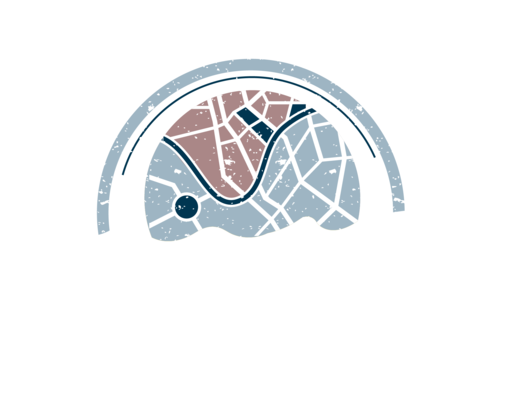What is the role of planning in our present economic system?
All modern economic systems plan. The question is whether planning is democratic, what institutions set the terms of reference for planning, how extensive it is, and what values are given priority. In the current system major tax policies, public subsidy programs, regulations, and a variety of detailed laws create a de facto plan that gives priority to the interests of oil companies, a small number of very large banks, major military contractors, a small number of major airlines, and numerous large corporations in many different sectors. The process takes place largely behind the scenes through corporate lobbying and major campaign contributions and is mainly hidden from the public on a day to day basis. Its ultimate form are a series of laws and regulatory decisions which, taken together, constitute a de facto plan.
How would planning function in the Pluralist Commonwealth?
In the Pluralist Commonwealth, transparency and democratic participation and control of planning are central priorities, as is anchoring the process in economic institutions that for the most part are democratically owned rather than corporately controlled. At the same time, planning is understood as an ongoing, evolving process. Like current planning in which the executive branch of government submits budgets along with tax, regulatory and other proposals as elements of a de facto plan, and Congress evaluates and revises both budgets and specific programs, so too ultimately public decisions of this kind must be made in the Pluralist Commonwealth.
The process that leads to major planning decisions, however, is quite different. Instead of starting at the top, the sequence of decisions begins with the needs of local COMMUNITIES, where local cooperative, worker, community-owned, and other smaller economic institutions are brought together community-by-community, state-by-state to generate a comprehensive set of economic priorities attuned to ecological, community, racial equity, gender, and other goals. A major requirement is the general targeting of policies to ensure stability of local communities. The planning process then integrates the elements developed in this way with directions proposed by larger regional and national institutions to form one or more alternative comprehensive plans that define the critical choices which need to be made between different options. (Modern computer and other technologies offer radically new possibilities for calculating the implications of different planning choices and clarifying the consequences of different strategies.) Once the basic choices are clarified, public decisions at different levels of scale can be made between different options within the plan to create an integrated direction.
The planning system is complemented by the strategic use of markets in many areas—and by experimentation with how to develop, step-by-step, the best balance between the planning of key system parameters and requirements (e.g. ecological sustainability, community stability, ever greater equality, institutional support for liberty, etc.) and the use of MARKETS in areas where they make sense. Most systems—including that of the United States—have found, for instance, that planning is essential for the management of large scale agricultural production. (Otherwise boom and bust often undermines both the economy and rural life in general.) The current system, however, gives priority to large scale corporate farms. The Pluralist Commonwealth planning system would prioritize the importance of smaller farms and cooperatives together. At the same time, other institutions, like the modern farmers market, usefully employ MARKETS to meet the challenge of matching the needs of a diverse group of shoppers with the cultivation of specific vegetables and fruits.
The Pluralist Commonwealth is not some fixed vision that remains rigidly locked into an unchangeable structure for all time. It is best understood as evolutionary in nature—which is also to say a full-blown planning system cannot be created in one fell swoop. Nor can the relationship to markets be rigidly codified absent a great deal of experimentation. Rather the process of developing and refining how planning is organized is understood to be an evolving process—one in which the steady development of new economic institutions goes forward step by step, and new participatory process of planning are simultaneously developed and refined over time in parallel and cooperating fashion.
Where are new models of decentralized and more participatory planning being explored today?
The idea of locally targeted procurement as practiced by an increasing number of nonprofit anchor institutions (like hospitals and universities), in fact, constitutes a significant illustration of one kind of decentralized economic planning within a community-sustaining framework. Hospitals and universities are supported in significant part by public funding (e.g. Medicare, Medicaid, various educational programs, etc.). By shifting their purchasing power in an intentional way to help stabilize and democratize the local economy (along with specific goals relating to economic inclusion and, for instance, ecological sustainability), large nonprofit institutions can create targeted demand that is slowly removed from the often disruptive vagaries of the market. Such efforts can also give priority to catalyzing cooperatives and other forms of democratized community-based business development. Taken together such approaches suggest a direction for more advanced planning that can ultimately help stabilize local economies (and also thereby reducing the massive financial and carbon costs of “throwing away cities” that often flows from corporate maneuvering for investment advantage.)
Preliminary participatory approaches to planning are beginning to be developed in many communities around the nation. In Chicago, New York, and Vallejo California, for instance, participatory budgeting is now well beyond the initial experimental stage. Each city’s budgeting process functions differently. In Chicago, each of the city’s 50 wards is allocated $1.32 million dollars in “menu money,” which ward residents then vote to allocate to various infrastructure projects proposed by ward aldermen.1 The city of Vallejo, California became the first in the US to adopt a city-wide participatory budgeting process in 2012. Ideas for projects are collected, full proposals are developed based on these ideas, and residents vote to allocate a certain portion of the budget to desired projects, which are then implemented with on-going evaluation. 2 Another suggestive approach at the grassroots level involves Kentuckians for the Commonwealth’s (KFTC) effort to draft an unofficial plan—for implementing the EPA’s requirements of the Clean Power Plan—based on input from listening sessions, public forms, interviews, surveys, and door-to-door conversations with Kentucky residents. Since the Kentucky government itself has signaled noncompliance with the EPA’s initiative and refuses to produce an official plan, KFTC organizers hope that the home-grown plan, called “Empower Kentucky” will help guide Kentucky’s transition away from fossil fuels.3
Further directions are also clearly possible. Political scientists like Stanford University’s James Fishkin and Yale’s Bruce Ackerman have outlined and experimented with processes of citizen decision-making based on adequate time and information that are likely to inform new directions in public planning. Fishkin’s model, “Deliberative Polling” overcomes some of the challenges presented by ascertaining public opinion when the public is uniformed about key issues. Participants are first asked their opinion on a particular issue as in a traditional poll, then provided with balanced materials on the issue and given the opportunity to discuss the idea with a diverse group of people, and finally reinterviewed about the issue in order to understand the way their views change post-deliberation.4 Experiments in California and Texas, for instance, have demonstrated much greater sophistication in decision-making when adequate information is provided to individuals along with the time to engage others and experts on the implications of key choices.5 Another approach involves citizens’ juries or “planning cells” where randomly selected “jurors” discuss issues, hear evidence from expert witnesses, and make public judgements. Citizen’s juries or Citizen Initiative Reviews (that focus on ballot initiatives) have been implemented in Britain, Canada, Germany, the Netherlands, the United States, India, and elsewhere.6
Finally, neighborhood councils are another participatory venue that has begun to develop diverse institutional forms in the United States. In Atlanta, Georgia volunteer Neighborhood Planning Units hold public hearings and make nonbinding decisions on a host of local issues from city services to the local budget.7 In Minneapolis, Minnesota 80 neighborhood associations—with assistance from the city—helped direct hundreds of millions of dollars over 15 years to local projects through the Neighborhood Revitalization Program.8 Other neighborhood council arrangements can be found in Portland, Seattle, Los Angeles and elsewhere.9
See also:
Further reading
Archong Fung and Erik Olin Wright, Deepening Democracy: Institutional Innovations in Empowered Participatory Governance (New York, NY: Verso, 2003).
Bruce Ackerman and James Fishkin, Deliberation Day (New Haven, CT: Yale University Press, 2004).
Carole Pateman, “Participatory Democracy Revisited,” American Political Science Association, 1 no. 1 (March 2012).
Gar Alperovitz and Jeff Faux, “Planning: I: Our Future: Centralization or Decentralization?” New York Times, January 5, 1976, and “Planning: II: Laying a Foundation for Solving National Problems,” New York Times, January 6, 1976.
Gar Alperovitz and Jeff Faux, Rebuilding America: Blueprint for a New Economy (New York, NY: Pantheon Books, 1984). See: Chapter 15 “Toward Democratic Planning.”
Marta Harnecker, A World to Build: New Paths Toward Twenty-First Century Socialism (New York, NY: Monthly Review Press, 2015).
Michael Albert, Parecon: Life After Capitalism (New York, NY: Verso, 2003).
Pat Devine, Democracy and Economic Planning (Boulder, CO: Westview Press, 1988).
Robin Hahnel and Erik Olin Wright, Alternatives to Capitalism: Proposals for a Democratic Economy (Brooklyn, NY: Verso, 2016).
“Center for Deliberative Democracy,” Stanford University.
- 1 “Participatory Planning in Chicago,” PB Chicago, accessed November 8, 2016.
- 2 “Participatory Budgeting in Vallejo: Cycle 3 Rulebook,” City of Vallejo, California, accessed November 8, 2016.
- 3“Crafting Appalachia’s energy plan, using a home-grown approach,” Blue Moon Fund, accessed November 8, 2016.
- 4James S. Fishkin, Robert C. Luskin, And Roger Jowell, “Deliberative Polling and Public Consultation,” Parlimentary Affairs, 53(2000):657-666.
- 5For California, see: “The Deliberative Opinion Poll,” What’s Next California, accessed November 8, 2016; for Texas, see: James S. Fishkin, Robert C. Luskin, And Roger Jowell, “Deliberative Polling and Public Consultation,” Parlimentary Affairs, 53(2000):657-666.
- 6Robert Goodin and John Dryzek, “Deliberative Impacts: The Macro-Political Uptake of Mini-Publics,” Politics and Society 34 (2006): 223.
- 7 “Neighborhood Planning Unit (NPU),” City of Atlanta, accessed November 8, 2016.
- 8“NRP Primer: The NRP Concept,” NRP, accessed November 8, 2016.
- 9Terry L. Cooper, “Citizen-Driven Administration: Civic Engagement in the United States,” in The State of Public Administration: Issues, Challenges, and Opportunities, edited by Donald C. Menzel, et al. (Armonk, NY: M.E. Sharpe, Inc., 2011); Jeffrey M. Berry, et al., The Rebirth of Urban Democracy (Washington, DC: The Brookings Institution, 1993).





























